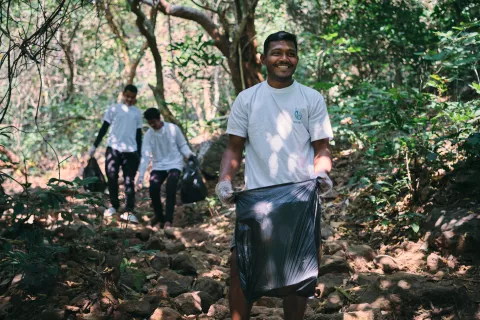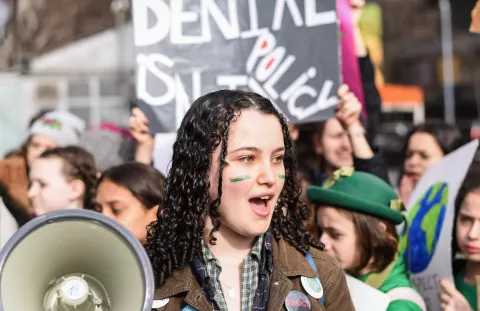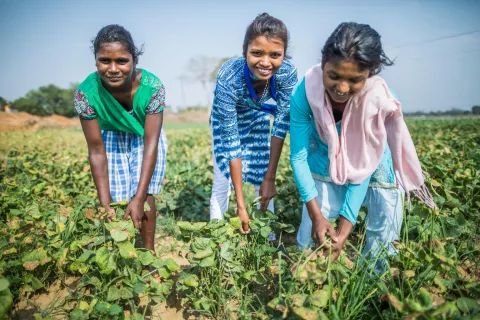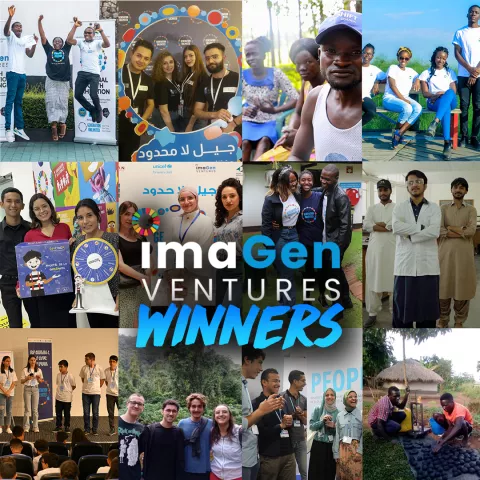Green Skills, Jobs and Entrepreneurship
Skilling young people to power the green economy and net zero transition.
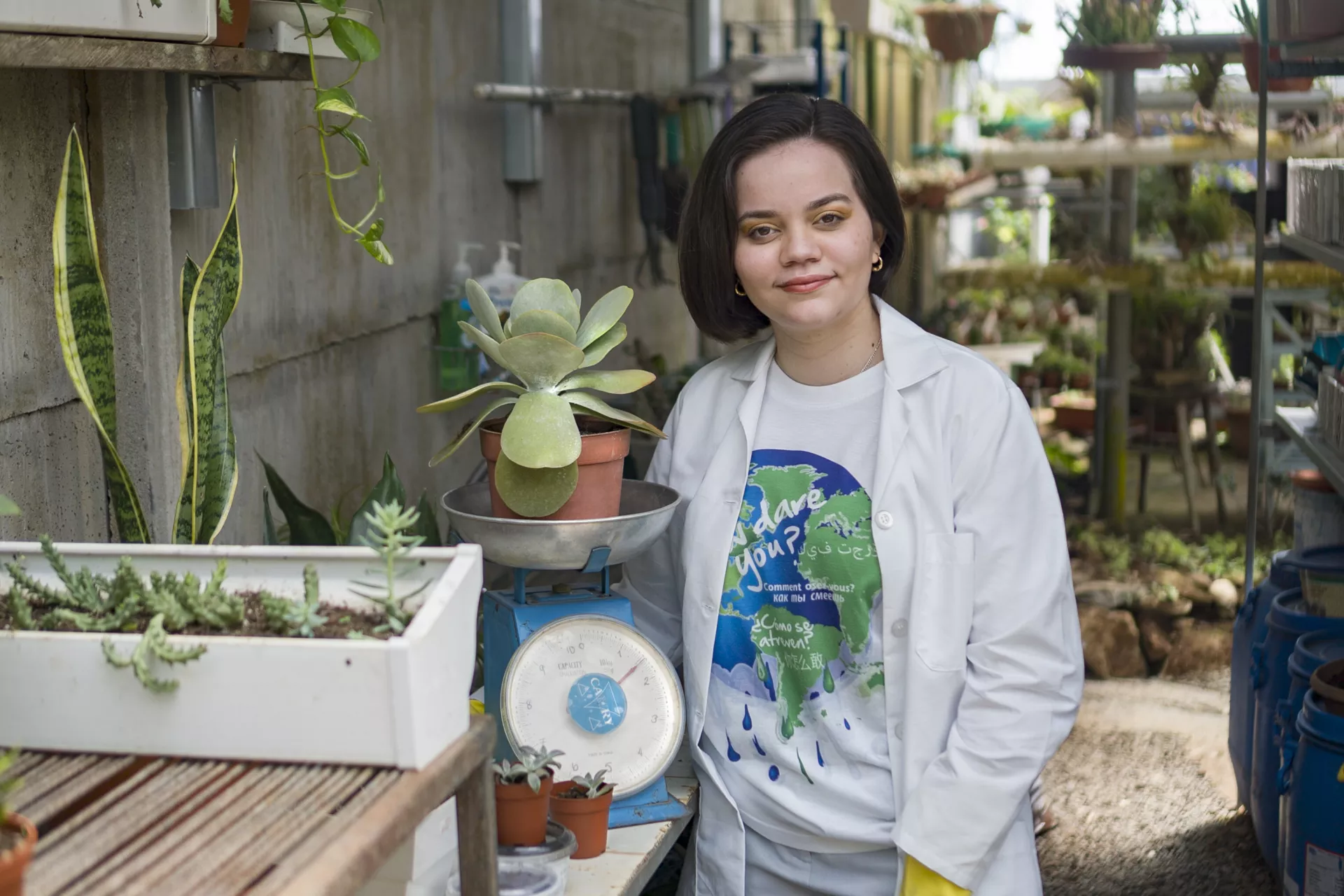
Young people will be the key to building a net-zero world, but they need the green skills and opportunities to make this happen!
We can't tackle the climate crisis without addressing the skills crisis, and green skills must be placed at the center of our efforts to achieve net-zero. That's why we're investing in green skills acquisition for young people globally, prioritizing those most disadvantaged. We want to equip young people with the knowledge and skills they need to tackle the complex challenges of the future and drive the transition to a more sustainable world.
Green skills encompass a wide range of areas, from renewable energy technologies to sustainable agriculture to green construction. And the good news is that the green economy is growing rapidly, which means there are more and more opportunities for young people to build livelihoods and make meaningful contributions.
From clean energy to sustainable farming, green jobs help build a future where the economy and environment thrive together. When young people pursue careers in the green economy, they're not only growing themselves, they're also helping their communities build climate resilience.
The Green Rising promotes green entrepreneurship, supporting young people with education, skills, mentorship, and opportunities to address environmental issues, create jobs, and offer sustainable solutions. We're especially focused on empowering young women in the green economy. The initiative collaborates with various youth networks and existing climate initiatives, including the Global Volunteer Initiative, ImaGen Ventures, U-Report, UPSHIFT, Green YOMA, and many other localized programmes on Solar Certification, Climate Change Leadership, and those that are greening learning & skills.
The Green Rising is also supported by The Green Jobs for Youth Pact – a joint effort by UNICEF, ILO, and UNEP, alongside private sector contributors, launched at COP27 that is working towards creating 1 million new green jobs, greening 1 million jobs, as well as supporting 10,000 green entrepreneurs by 2030.
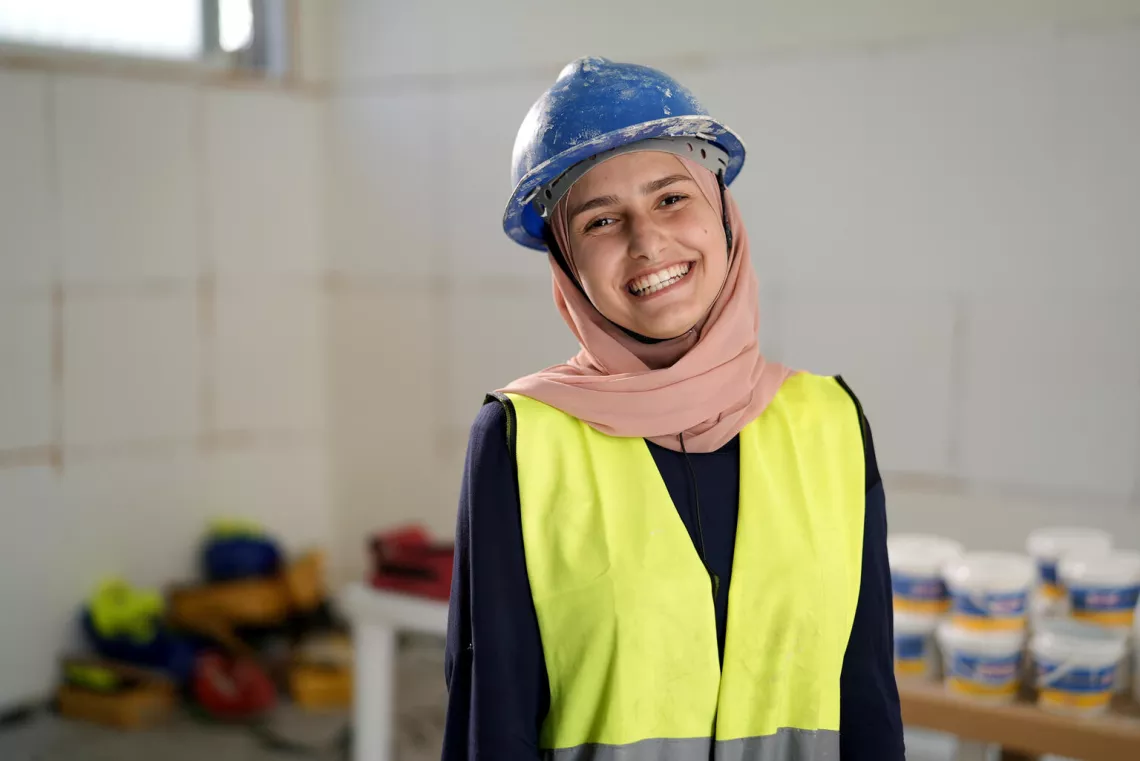
Green Skills & Climate Education
Bolivia: As part of the mainstreaming of climate change in the national curriculum, over 15,000 young people are now working on projects to make schools more resilient and contribute to local circular economies. Seed funding is also provided for adolescents to come up with start-ups geared towards mitigation and adaptation initiatives for their communities.
Burundi: 1,000 young people are building cleaner energy stoves for cooking and water purification, reducing the utilization of wood, reducing indoor pollution that affects mainly women and girls and generating earnings to finance their studies. Participating girls have developed green and STEM skills, and along with other young people, they are now inspired to get involved in other development projects – looking for additional actions and ways to protect their communities from the impacts of climate change.
Jordan: 650,000 adolescents are learning about climate action outside of their school system in nonformal education settings. A complementary initiative, Young Peoples’ Green Skills for Climate Action has engaged more than 35,000 local youth actions, including over 200,000 hours of environmental service leadership, planting over 7000 trees and collecting over 10,000 kilograms of recyclable materials.
Phillipines: 12,000 young people in the Philippines are designing and implementing climate action activities relevant to their local communities, as part of the school programme Change the Current, focused on learning about climate change adaptation and mitigation. Some 19 student-led projects have received seed funding and will be showcased nationally later in 2023 to inspire more youth-led action.
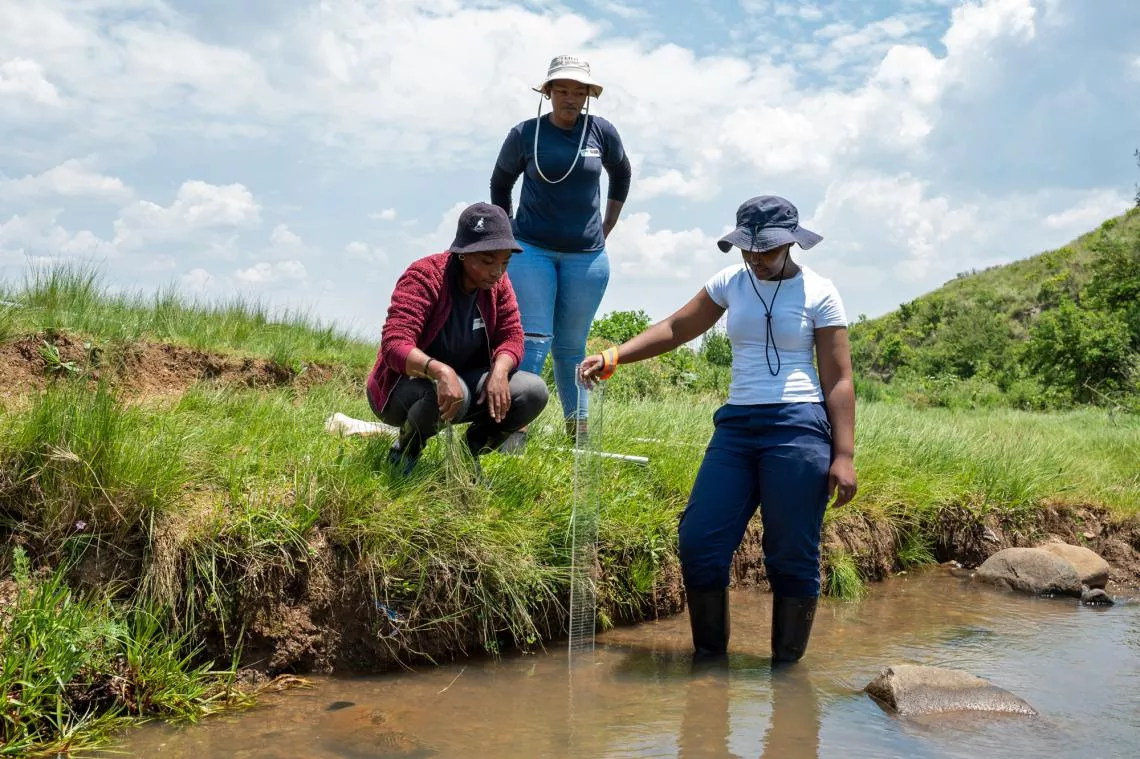
Green Entrepreneurship
Pakistan: Int-Tech, the winner team of Pakistan of GenU Youth Challenge 3.0., received a USD16,667 prize and one year of mentorship to further develop and scale their enterprise. Since January 2023, the team set up a company, Zamurd Enterprises and has successfully procured and installed a Biodegradable plastic-making machine in Quetta to produce plastic sheets/bags, benefiting from expert guidance, mentorship and access to potential investors through a public-private partnership with the provincial Ministry of Information Technology and Telecommunication.
Egypt: 'Soigel,' a youth-led green venture has created a high-efficiency organic fertilizer made from recycled sugarcane waste that can absorb CO2 from the atmosphere. Their fertilizer helps increase productivity and mitigates water usage. The Soigel team is now producing three products: An organic fertilizer called ‘Soilizer’, ‘Aquagels’ that control-release water thereby effectively decreasing water usage in farming, and a ‘Loaded Aquagel’ that control-releases fertilizer into the soil.
Zimbabwe: Children, young people and communities are being mobilized across Zimbabwe thanks to the implementation of climate change education in schools and the new Clean Green Zimbabwe (CGZ) initiative, aimed at strengthening community resilience through collective actions in schools, communities, health facilities and other public places. CGZ is inclusive of children, adolescents and their families — especially persons with disabilities. Moreover, the winning team of the Zimbabwe GenU Youth Challenge 3.0 continue to grow their business initiative ‘A light for every child’, a sustainable clean energy sourced lighting system that can be used in remote areas cut from the electric grid.

